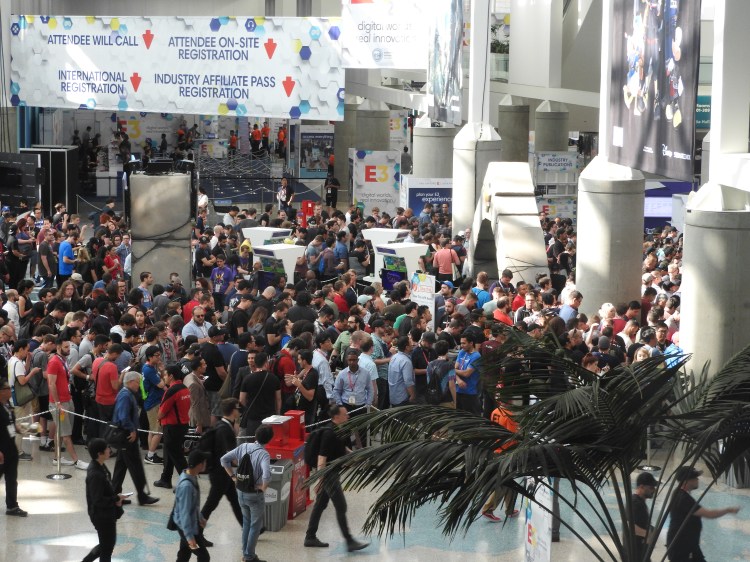The World Health Organization (WHO) said that “gaming disorder” will appear in a new draft of the organization’s International Classification of Diseases, a compendium of medical conditions. The previously signaled move takes the policy one step closer to official recognition in the wake of a successful Electronic Entertainment Expo (E3) game trade show in Los Angeles last week.
The United Nations’ WHO has been contemplating the declaration of compulsive video game playing as a mental health condition since last year, and the game industry has been pushing back. WHO said that classifying “gaming disorder” as a separate addiction will help governments, families, and health care workers be on guard to identify risks. It said no more than 3 percent of players are likely affected.
The game industry just celebrated a big year at the E3 event, which drew more than 200 exhibitors and 69,200 attendees to an event that led to billions of social media views.
In a statement, the game industry’s trade group, the Entertainment Software Association, said:
It is extremely important to note that the proposed draft circulating is not final, and it is still under discussion and review. Experts worldwide are urging caution regarding the World Health Organization’s proposed ‘gaming disorder’ as it may lead to misdiagnosis of real mental health conditions. There is no objective evidence to define and diagnose this disorder and the research supporting inclusion is highly contested and inconclusive. With the significant opposition from the medical and scientific community, the WHO should consider the mounting evidence put before them before making a decision on the inclusion of a ‘gaming disorder’ in the final version of ICD-11 next year.
The ESA has battled the allegation that violent games cause violence for years, and the group has successfully battled legislation that attempts to censor games or limit their distribution. But the WHO’s concerns dovetail with more fears about addiction to other aspects of technology, such as mobile phone addiction or social media addiction.
One of the consequences is that doctors will be able to treat patients for the condition and health care organizations or governments can pay for that treatment. But game companies have often argued that games are both educational and therapeutic.
Jen MacLean, executive director of the International Game Developers Association, said in a blog post in January that the classification poses threats to game developers and it is “so broad as to cover almost every person who’s ever played ‘just one more turn’ of an amazing game, or who prioritizes games as their first choice of hobby or entertainment.”
WHO said the following:
Clinical cases of gaming behaviour leading to distress or significant impairment in functioning have been reported in the academic press and clinical practice for many years. In 2013 “Internet Gaming Disorder” was included in the classification of mental and behavioural disorders of the American Psychiatric Association (DSM-5) as a condition for further study.
Since 2014 WHO has started activities relating to the public health implications of excessive use of the Internet, computers, smartphones and similar electronic devices in response to concerns expressed by professional groups, WHO collaborating centres, academics and clinicians about associated health consequences.
Gaming disorder, with its online and offline variants, has been included in the draft of the 11th edition of the International Classification of Diseases (ICD-11) as a clinically recognizable and clinically significant syndrome, when the pattern of gaming behaviour is of such a nature and intensity that it results in marked distress or significant impairment in personal, family, social, educational or occupational functioning.
ICD-11 is scheduled to be released in June 2018.
Health concerns associated with gaming behaviour are not limited to gaming disorder, but also include other aspects of health (e.g. insufficient physical activity, unhealthy diet, problems with eyesight or hearing, musculoskeletal problems, sleep deprivation, aggressive behavior and depression) and psychosocial functioning.
Studies suggest that gaming disorder affects only a small proportion of people who engage in digital- or video-gaming activities. However, people who partake in gaming should be alert to the amount of time they spend on gaming activities, particularly when it is to the exclusion of other daily activities, as well as to any changes in their physical or psychological health and social functioning that could be attributed to their pattern of gaming behaviour.

